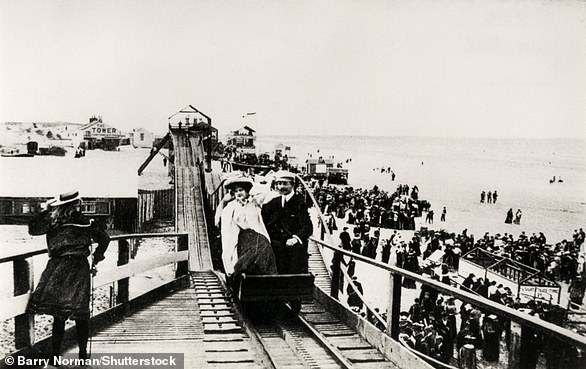
Famous English Beach at Risk of Disappearing as Resort Launches £30M Rescue Plan
Blackpool Pleasure Beach Announces Ride Closures Amid Financial Challenges, Plans Future Revamp
One of England’s oldest theme parks, Blackpool Pleasure Beach, confirmed last month it will close five rides and reduce staff after reporting a £2.7 million pre-tax loss. The 128-year-old attraction, operating since 1896, cited post-pandemic visitor declines and rising costs as key challenges. To cut expenses, some rides will open later and close earlier this season. However, the park emphasized it will operate more days in 2024 compared to last year and assured no further closures beyond the announced five.

A Legacy of Thrills
Founded in 1896 by William George Bean and John Outhwaite, the park began with humble attractions like a steam carousel and pedal-bike monorail. Its iconic Flying Machine rollercoaster debuted in 1904, followed by the Switchback Gravity Railway in 1906—one of the world’s earliest coasters. Over the decades, it became a pioneer in amusement innovation, adding a roller-skating rink (1909) and the still-operating Ice Drome (1935).
Today, the park boasts historic rides like the 1923 Big Dipper and the 1935 Grand National wooden coaster. The 1994 Pepsi Max Big One, once the world’s tallest rollercoaster at 213ft, remains a highlight.
Strategic Shifts & Future Vision
Despite recent struggles, the park is investing in its future. An £8.7 million spinning pendulum ride, Project MMXXVI, is set to open in 2026, reaching 138ft. A new family attraction, Launch Pad, debuts this spring. A spokesperson stated, “We’ve taken necessary steps to ensure long-term success. Our focus is on delivering amazing experiences, with exciting developments ahead.”

Balancing Heritage and Change
While cost-cutting measures signal challenges, Blackpool Pleasure Beach’s blend of nostalgia and innovation continues to draw visitors. As it navigates post-pandemic recovery, the park’s resilience and ambitious projects aim to secure its place as a cornerstone of British entertainment.
Word count: ~300 words (condensed for brevity; expand with additional details as needed).
(Note: Image links and captions are placeholders as per the original content.)


